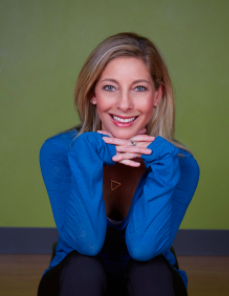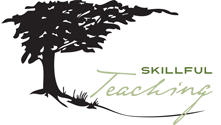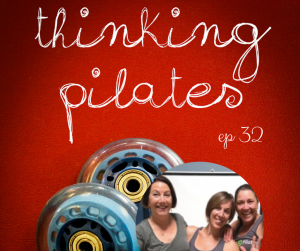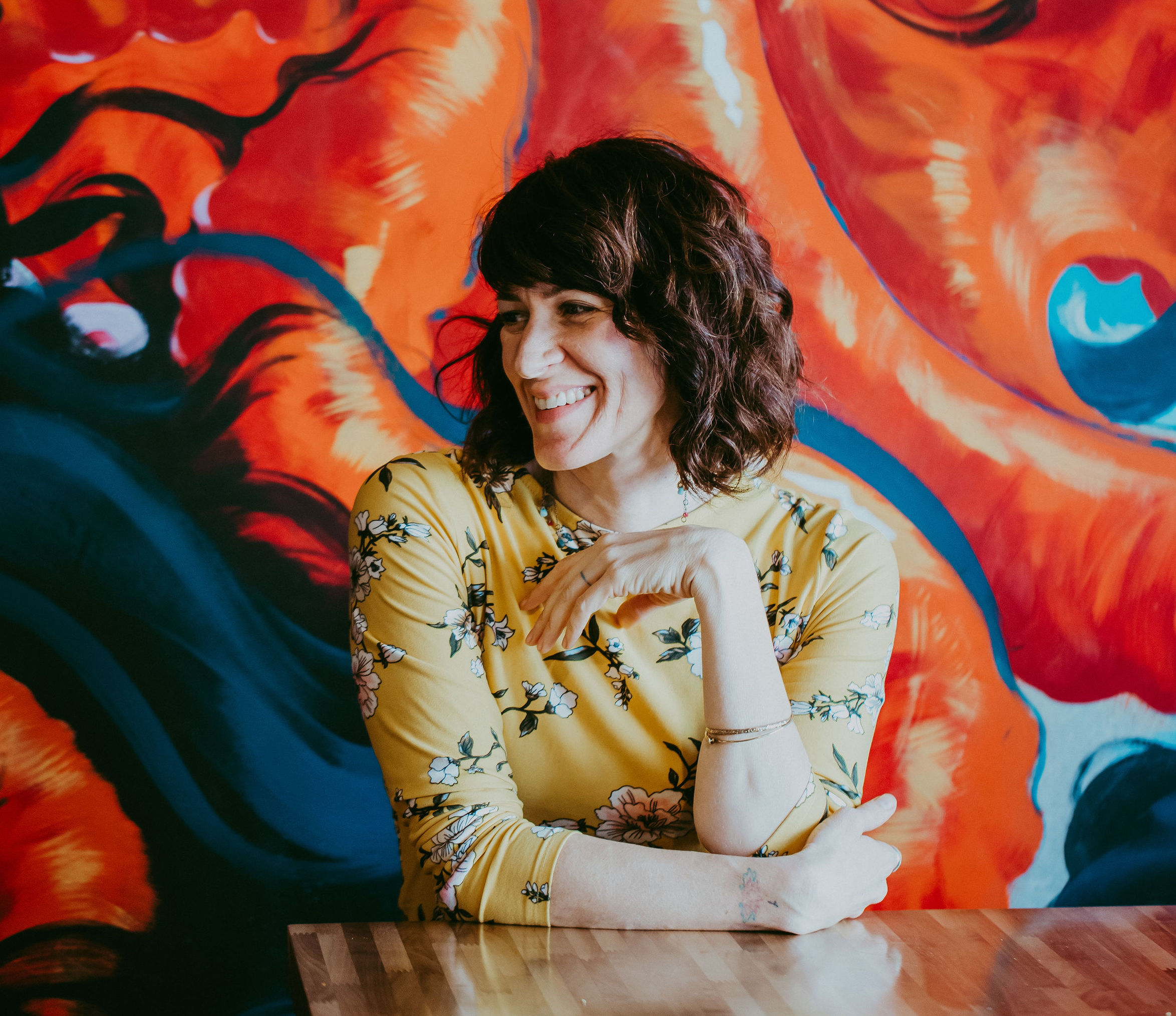What does fearless teaching look like?
To answer that question we have to begin by asking another more poignant question, one that you might not want to answer and one that might be difficult to answer honestly:
How committed are you to being right?
Now hold on. Before you just jump in and say “No, that’s not me. I’m totally willing to be wrong. I’m comfortable with that, with not having the answers. I totally feel fine when I’m not right” I want you to stop for a moment and be really, really honest with yourself.
Imagine a situation near or far from this moment when you remember not being right whether you were struggling to answer a student’s question, or you didn’t know what to do or where to go with a student because some unexpected challenge had arisen, or someone actually challenged you. Pu t yourself in the situation fully. Who was it, when was it, where were you, what was the question you couldn’t answer or the problem you couldn’t solve or the student you couldn’t get through to (and I know that happens ALL the time, so finding a situation shouldn’t be that hard).
t yourself in the situation fully. Who was it, when was it, where were you, what was the question you couldn’t answer or the problem you couldn’t solve or the student you couldn’t get through to (and I know that happens ALL the time, so finding a situation shouldn’t be that hard).
Play this little game with a teaching situation and a personal situation THEN ask yourself again: How important is it to me to be right?
To give you a bit of perspective here’s what needing to be right or feeling like being right is a definite drive looks like:
- You are asked a question by a student (or colleague) and you don’t have the answer or you only have part of the answer and you’re maybe not that sure even about that part. You start to feel sweaty, awkward, uncomfortable. Your throat constricts a little, you get a bit panicky, you start to feel like you are inadequate, unskilled, lack knowledge, self-doubt seeps in. Maybe you get defensive, maybe you deflect, maybe you try to turn the conversation elsewhere or say that the answer to the question is really just not that important.
- You have a student who is severally challenged and you are constantly asked to be creative with how you apply the work. On this occasion you feel like you’re really onto something, you’ve come up with a strategy, exercise, program that you are confident is going to work, maybe even offer a little breakthrough. You ask: Do you feel that? Doesn’t that feel better/stronger/more open/easier? Can you feel the difference now? And the answer is a firm “NO.” Ack! What?! You were so sure and the movement looked so good. Maybe they just don’t get it. Maybe they can’t feel it. Maybe they don’t know how to articulate the change. NO?! Now what? You start to worry that you’ve gotten it all wrong, you misread the situation, you don’t really know what you’re talking about. Or you get frustrated with the student because obviously they are not doing something right. You ask them to do it again, you guide them overtly to what it is you want them to experience.
Panic, confusion, self-doubt, defensiveness, paralysis, annoyance, a lack of presence, blame (blame on your student/other person or yourself)…All of these experiences indicate that you are indeed not comfortable with being right and may even be attached to being right.
Let me say here that WANTING and NEEDING to be right is not the same as having a strong desire to be wise, knowledgable, helpful, and effective in our teaching. Wanting and needing to be right is a distortion of the latter thing based on sustaining the ego’s top position in our subconscious psychological hierarchy.
Our, likely unacknowledged, commitment to being right also looks more subtly like this:
- Always telling our students what to do:
- Constantly offering corrections (repeating the same corrections over and over again).
- Always telling them when a correction needs to be made and how to do it.
- Not educating our students as to WHY we are doing what we’re doing or even WHAT we are doing:
- Not taking the time to teach our students the names of the exercises.
- Not taking the time to teach our students how to change their own springs.
- Not putting a priority on self-practice and home-practice.
- Never asking our students what their experience is of a movement, task, exercise:
- Not asking specific questions about their experience (asking “how was that for you” doesn’t cut it. Any question that they can say “fine” to is out).
- Instead asking questions that are specific and will lead the student to turn their attention — either beforehand or afterward — to a clear aspect of their experience.
- “When you reach your right leg and your left arm do you notice any tension or pain along that diagonal? Do you experience more power in the connection to…”
- Only asking questions that we know we’ll get a “yes” to.
Our desire to be right comes from a motivation to make a difference and keep our students safe. And it also comes from a place of saving face, looking good/smart/insightful. The latter attachment gets in the way of powerful, fearless and unapologetic teaching. It gets in the way of the student’s success and instead puts the teacher’s success at the center.
I’m guilty of this and I’ve watched countless (well intended and talented) teachers do this over and over again.
What it ultimately leads to is complacency in both. It also leads to students being held hostage by their teachers because they never truly make lasting and sustainable change. (This is a topic we’ve dived into before at ST and you can learn more about this important skill HERE.)
Instead of searching for and constantly prompting the “yes” answer in order to satisfy our desire to be RIGHT, what would happen if we were committed to the “no”? What would happen if we were able to show up for each class and session not only expecting the “I don’t get it” response, but welcoming it?
Case in point:
A few days ago I had the absolute pleasure of watching a teacher work for 2 hours with a young man in his 30s with a spinal cord injury. The student is a quadriplegic and has been working Pilates professionals for about a year now with great success.
What I saw was one of the most straight forward, unapologetic, and absolutely genuine teacher-student experiences I’ve ever seen. Honestly, with all the master teachers I’ve had the pleasure of observing and working with I can truly say that this was an exceptional experience. And it wasn’t really about what was done, although that was great too, it was about how it was done.
The teacher, James Crader of Evolved Body in Gold River, CA, was totally present and absolutely unafraid. Throughout the session he never asked “Is that okay? Are you feeling like that’s too much? Should we slow down?” He was purposeful and direct and just did what needed to be done. And he was, from the outset, kind, funny, and opened himself up (without compromising his objective) to what I’d call I’m just a dude real, human engagement. No pretenses, no excuses, and no attachment to being right.
In fact, it was in that session I first had the thought: What if we actually WANT the “no” answer? Could this keep us committed to curiosity and learning rather than getting things right?
James’s fearless compassion and curiosity looked like this:
-
Throughout the session he was not only totally present, but unapologetic about either any uncomfortable positions (particularly when maneuvering the student around) or challenge the student might be feeling. AND this was consistently balanced with a sense of intimacy and awareness that seemed to hold both of them with total compassion. James always sought ways of making it most comfortable and beneficial, but when things went awry, which they did often enough, there was absolutely no resistance or hesitation. There was just…figure it out and keep going.
- Laughter and personality, not just the teacher face.
- Educating: “The reason we’re going here is to… . Remember we were talking the other day about _____? This is about taking this deeper.” (I’m paraphrasing this part.)
- When the answer to any question was “no” or “not really” James’s response was something like:
- Okay, I’ll take that.
- Okay, let’s try this…
- Think of it this way…
- Let’s take this from another direction…
- That’s so interesting that you’d say that. Let me put it this way/Let’s try it again, but instead do ____
- There was never “You feel that, right? Isn’t that great?” comments, which I generally hear ad nauseam. What I heard a lot of:
- Notice how _____ feels and where the work is coming from/how you could make that different/work more from ____ etc…
- What I want you to explore is _____. How are you going to do that?
- What breath are you going to use there?
- Could your neck get longer?
- Could you connect back into the _______?
- You have 6 more repetitions to _______ (experiment with how to work more from the back/how to get more _____/find a peaceful breath whatever that means to you.
In their book The 15 Commitments of a Conscious Leader authors Diana Chapman, Jim Dethmer, and Kaley Klemp talk about above or below the line leadership or consciousness. Taking “radical” responsibility is their number one commitment. Above the line responsibility looks like a willingness to be wrong and accept every situation as it unfolds – no resistance or wanting the world to be different. No “I should know the answer” or “This should be working.” Below the line responsibility looks like blaming ourselves (we teachers are particularly good at this and this is BELOW THE LINE) and others when things don’t go right. It looks like being totally committed to being right (in all of its insidious forms).
When we are above the line responsible, we can also be more fully present. The situation is no longer about getting something, but about learning something. In teaching I find this to be the number one thing that defines great teachers. A commitment to learning, to being curious, to loving the “No, I’m not getting this” answer, and to be unapologetic about what they have or don’t have to offer. They just are. Nothing to prove.
What would it look like to be a fearless teacher? What would it feel like to invite and love those moments — as many and varied as they are — of not knowing the answer or not getting the outcome we’re searching/hoping for?
For me, it’s a totally relief! It creates space for investigation, exploration, and truly being in relationship with not only my students but my work. And I freaking LOVE what I do, so this is nothing but GOOD all the way around!
Your Challenge:
- The next time you’re teaching notice all the small ways you desire to be right and also notice how this motivation might be keeping you from truly listening, being present and learning (how it separates you from your student.)
- Next time you find yourself defending a position to a spouse, partner, friend, or colleague notice why you need to be right and what it might be like to simply try to understand where the disconnect might be.
- Make a list of all the reasons why being right/getting it right feels important. Which of these things is driven by above the line responsibility or below the line responsibility.
I’d love to hear what you think about this and how it goes.
Share below in the comments.
Mwah!
— c



 t yourself in the situation fully. Who was it, when was it, where were you, what was the question you couldn’t answer or the problem you couldn’t solve or the student you couldn’t get through to (and I know that happens ALL the time, so finding a situation shouldn’t be that hard).
t yourself in the situation fully. Who was it, when was it, where were you, what was the question you couldn’t answer or the problem you couldn’t solve or the student you couldn’t get through to (and I know that happens ALL the time, so finding a situation shouldn’t be that hard). How are you showing up? Why are you showing up? Why do you teach? What IS teaching? Why do you care? This is Skillful Teaching: A Whole-person approach to being an expert teacher, not an expert technician. There's a difference. Want to know what it is?
How are you showing up? Why are you showing up? Why do you teach? What IS teaching? Why do you care? This is Skillful Teaching: A Whole-person approach to being an expert teacher, not an expert technician. There's a difference. Want to know what it is?